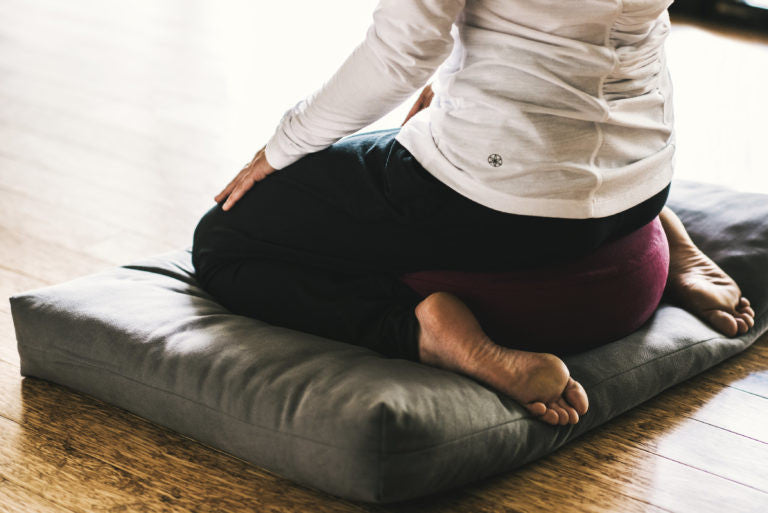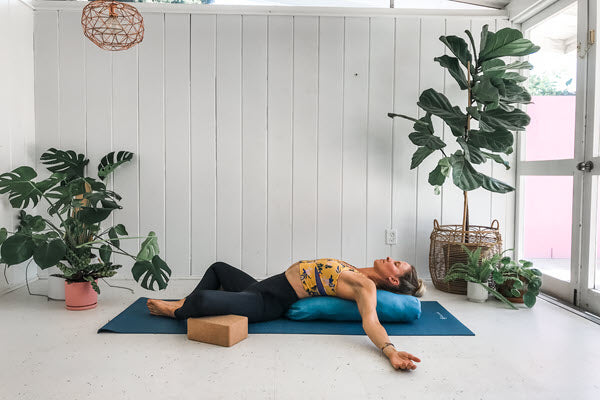1) It Keeps You Grateful
A really strong reason to meditate for a good relationship is its impact on your perspective. By helping you regulate your emotions, meditation can help you keep a positive perspective. You stay grateful and gratitude, in turn, is a powerful predictor of long-term love. Research shows us that, over time, we get used to the things we have and people we are with and can start to take them for granted. That’s the point where people may start to focus on what’s wrong with their partner or forget why they fell in love in the first place. Grateful people are more satisfied in their relationships and feel closer to one another. When you are grateful, you stay focused and appreciative of your partner’s good qualities. Your partner, in turn, feels appreciated, and your bond strengthens.
2) It Curbs Your Stress
Most people experience stress during the day. Worse yet, they bring their stress home. As a consequence, their spouse gets the brunt of it: a short fuse, bad moods, lack of affection. Over time, this kind of pattern can lead to a negative atmosphere in the home and create distance between partners. What we found in research with a population that has a tremendous amount of stress—veterans returning from war—is that using a simple breathing-based meditation (sudarshan kriya yoga), anxiety and stress reduced tremendously. If you can take responsibility for curbing your stress by using this kind of simple practice, you not only will curb your own stress but also help preserve your relationships with your loved ones.
3) It Keeps You Positive
In researching my recent book, The Happiness Track, I was amazed at the benefits of happiness: it makes you more present, more charismatic, more focused, more productive, more creative. Even your capacity to learn and think outside the box improves. Most importantly, we know that positive emotions help you connect more easily with others. It makes us more open, approachable and it strengthens our feelings of connection to others—even strangers. Think about it—on a day when you are feeling stressed and blue, you probably are less likely to strike up a conversation with the person behind you at Starbucks. Stress makes us self-focused. However, when you’re feeling on top of the world, that’s the day you are more likely to share a joke with a stranger or notice if someone needs help holding the door open for them. Research shows that laughter—an outcome of positive emotion—makes you more open to new people and helps you build and strengthen relationships. Moreover, it helps make you more resilient in the face of difficulty, like challenging relationships. All of us will face trials in our life, but only some of us have natural resilience and an ability to bounce back quickly. Hundreds of studies (see here for some examples) now show that meditation is a powerful way to boost happiness and well-being. By helping with anxiety and even depression, it can help keep you in a positive frame of mind that has enormous benefits
4) It Strengthens Your Feelings of Connection
Sometimes partners start to feel more distant from one another. In research we conducted on compassion and loving-kindness based meditations (the version we researched is available on the Gaiam Meditation App), we found that these kinds of meditations can really help people feel more connected and empathic. You can literally train yourself to feel more compassionate and loving. And research shows that empathy and compassion have tremendous benefits for your health and happiness: improved happiness, lower inflammation, decreased anxiety and depression, and even a longer life. Not to mention better and stronger relationships with other people. Both men and women, when asked which traits they value most in a prospective partner, mention kindness.
–
Emma Seppälä, Ph.D., author of The Happiness Track, is Science Director of Stanford University’s Center for Compassion and Altruism Research and Education. She is the founder and editor-in-chief of Fulfillment Daily, a news site dedicated to the science of happiness. She also consults with Fortune 500 leaders and employees on building a positive organization.




